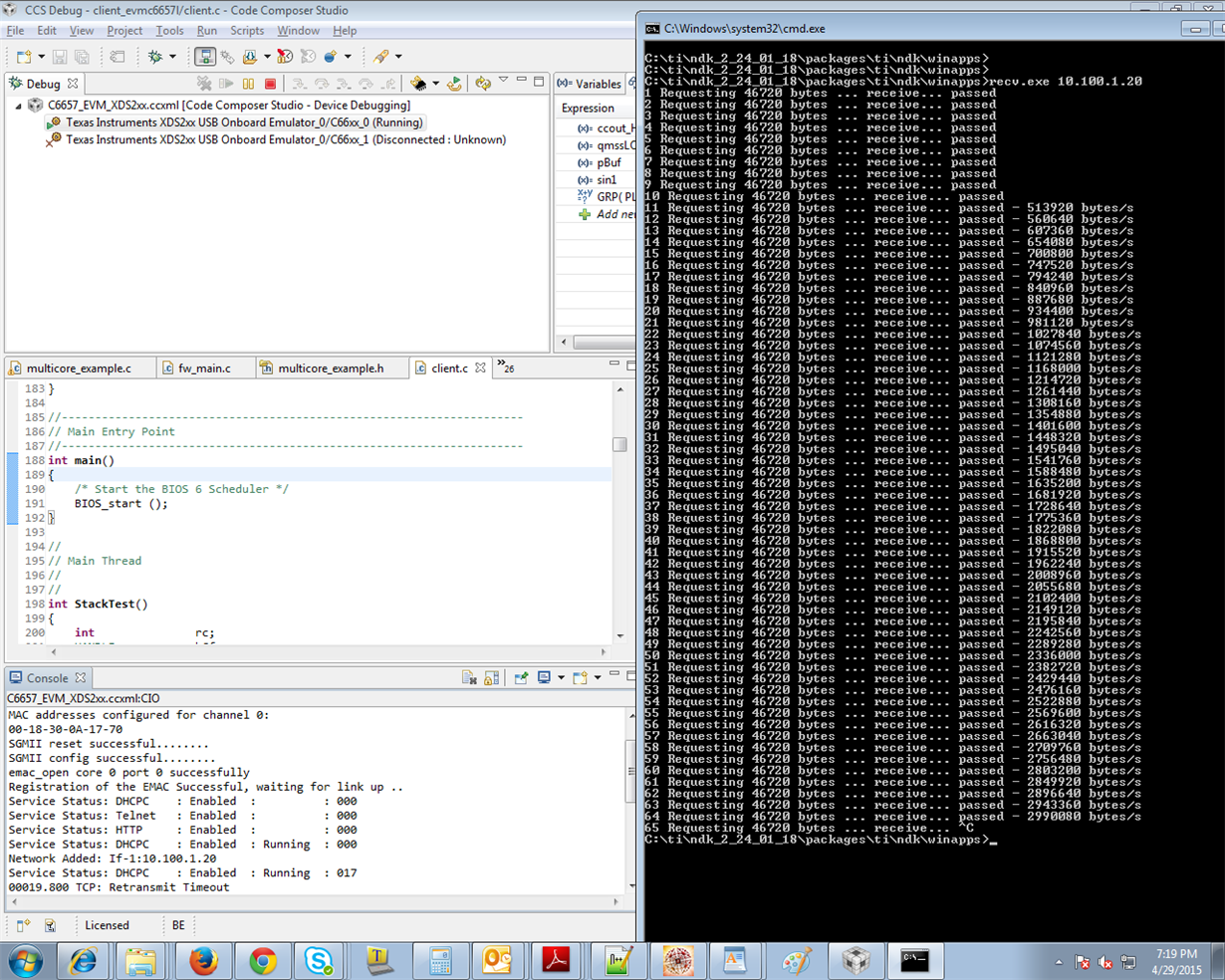Hi,
i am having a custom board and i am using the client application.
i connected the custom board with LAN Cable(RJ45) and other side it is connected to to the router and my host pc also connected to the same router. i want to do tests in the following way.
(1)i want to send some packets from the Host PC to the custom board that DSP in the custom board get these packets through the complete protocol stack and send back?
can i use the example tests helloworld.exe, send.exe under D:\Tools\CCStudio_v5.5\ndk_2_21_02_43\packages\ti\ndk\winapps.?
(2) finally i want to connect two custom boards with LAN cable(RJ45) to both Ethernet ports, and use one DSP on one board as the transmitter and the other DSP on the second board as the receiver and communicate both and sending packets from one to other. has any one tested like this?
When i run the client application i am getting the output as shown below. it is giving the right ip address of my custom board. but when i run the the example tests helloworld.exe, send.exe under D:\Tools\CCStudio_v5.5\ndk_2_21_02_43\packages\ti\ndk\winapps they are failing. why?
Output:
[C66xx_0]
TCP/IP Stack Example Client
6:48 ( 9%) 4:96 ( 12%) 9:128 ( 37%) 0:256
1:512 ( 16%) 0:1536 0:3072
(12288/49152 mmAlloc: 20/0/20, mmBulk: 0/0/0)
void hookThreadBegin
void hookThreadInit
emac_init: core 0, port 0, total number of channels/MAC addresses: 1/1
MAC addresses configured for channel 0:
00-17-EA-F1-52-D7
SGMII reset successful........
SGMII config successful........
emac_open core 0 port 0 successfully
Registration of the EMAC Successful, waiting for link up ..
Service Status: DHCPC : Enabled : : 000
void hookStatusReport
Service Status: HTTP : Enabled : : 000
void hookStatusReport
void hookNetworkOpen
Service Status: DHCPC : Enabled : Running : 000
void hookStatusReport
Network Added: If-1:xx.xx.xx.xx
void hookNetworkIP
Service Status: DHCPC : Enabled : Running : 017
void hookStatusReport
ti.sysbios.heaps.HeapMem: line 294: out of memory: handle=0x8ea788, size=5120
xdc.runtime.Error.raise: terminating execution
Thanks,
Regards,
Ram.




